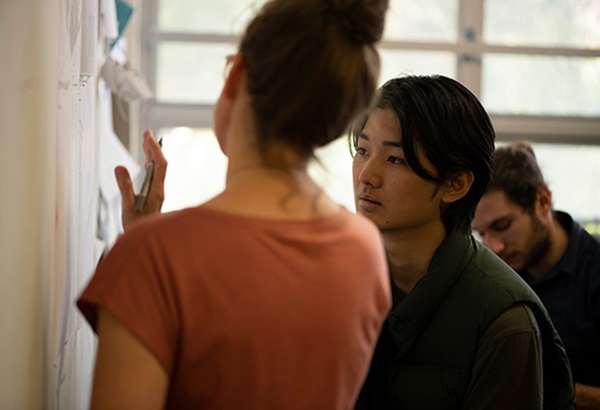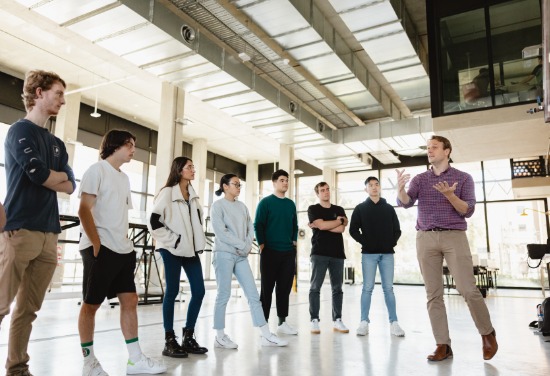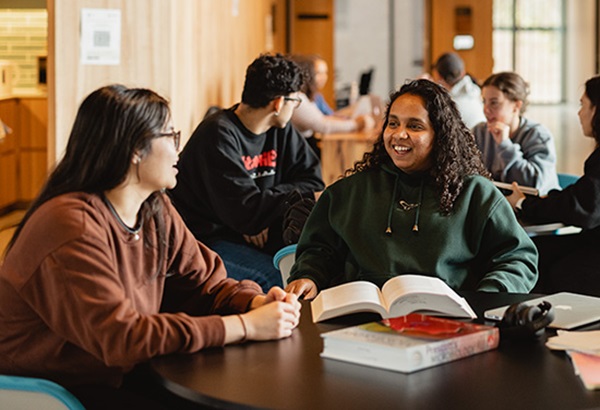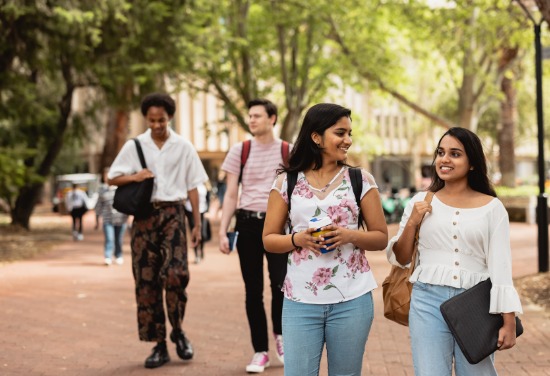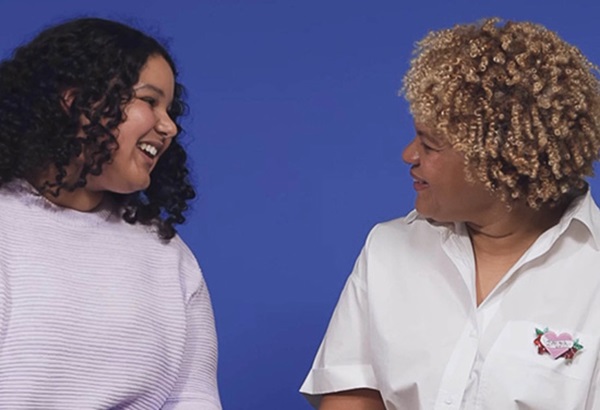Meet 6 health professionals who took their existing knowledge and skills in the sector and decided to upskill or reskill to enhance their career opportunities.
If you are interested in upskilling or reskilling in areas of health, view our range of courses.
Elsie Blay
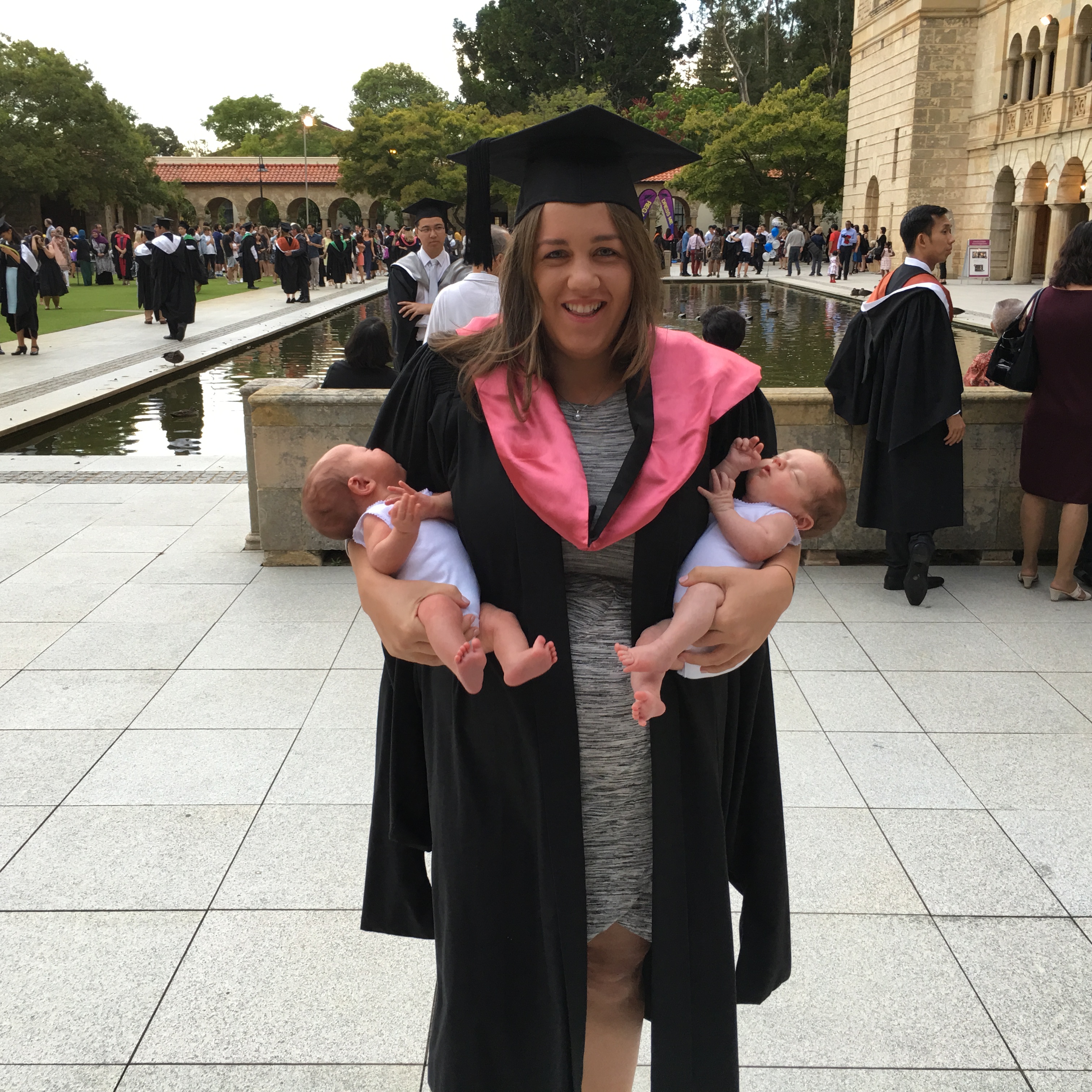
Formerly: Nurse
Studied: Master of Public Health
Currently: Executive Manager Strategy and Projects at Ruah, a community service provider offering support in the areas of homelessness, family and domestic violence and the challenges of living with chronic mental illness
I worked full time at Sir Charles Gairdner Hospital in the Emergency Department (ED) while studying. I would walk down after my shifts and it worked perfectly timing wise. I had time for a coffee and then had face-to face-lectures.
Prior to ED I worked in the US nursing and in a range of wards at SCGH. I graduated in 2016 and am now enjoying my career. I studied the Master of Public Health to learn more and explore upstream solutions to the everyday challenges we face in ED.
When I graduated I had four-week-old baby twins! It sure was a juggle, but so is real life, so it was good practice. At the end of my second year (of my master’s) I was successful in a project management job in the field of my study. This was a huge win for me and during this time I worked on my thesis dissertation. (There’s) lots of early mornings and late nights but that’s the key to getting it all done.
Elsie’s advice to those interested in upskilling or reskilling in health
Go for it! It was absolutely a brilliant experience. My career currently is 10/10 and a dream job for me. I am doing things I dreamed of at uni and I have a brilliant team, autonomy and creativity to work towards solving some really important social issues. I use my nursing background every day and having public health expertise in addition to this has made for an exciting and rewarding career.
Megan Crowe
Formerly: Speech pathologist
Studying: Graduate Certificate in the Diagnosis and Assessment of Fetal Alcohol Spectrum Disorders
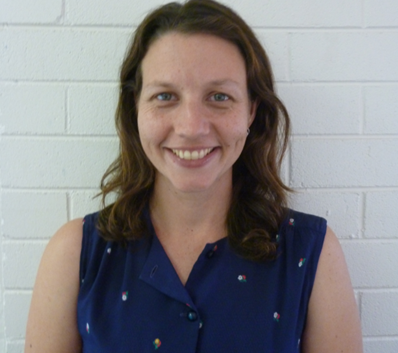
I graduated in 2008 and worked in a range of positions, including in acute hospitals and community health positions. I am now in my final unit of the Graduate Certificate in the Diagnosis and Assessment of Fetal Alcohol Spectrum Disorders (FASD) and have just completed the placement component of the course in Alice Springs, which was a fantastic learning opportunity.
UWA is the only university that offers this course (in the world, I believe). The online nature of the course means it’s accessible from anywhere. We had students from a range of professional backgrounds taking part from NT, remote WA and New Zealand.
I’ve had a specific interest in FASD over a number of years and have been undertaking independent learning but wanted the opportunity to learn about current research and discuss with others who were interested in the same subject.
In this course I have had the opportunity to read extensive research and engage in discussion around a very complex condition that affects children, young people and families across generations. I hope to share this knowledge and discuss at a local and Northern Territory level and to engage in discussions that will hopefully enact change and assist and empower those we work with.
Megan’s advice to those interested in upskilling or reskilling in health
I believe you need to be really interested in the topic in order to motivate yourself and dedicate the time. It's a large financial and time commitment, so making sure you are prepared is important. After working as a speech pathologist for more than 10 years, it was a great time for me to immerse myself in a topic I was interested in and learn from world experts and my peers.
Carolyn Neil
Profession: Doctor
Studying: Master of Health Professions Education by Coursework with Dissertation while working at Royal Perth Hospital
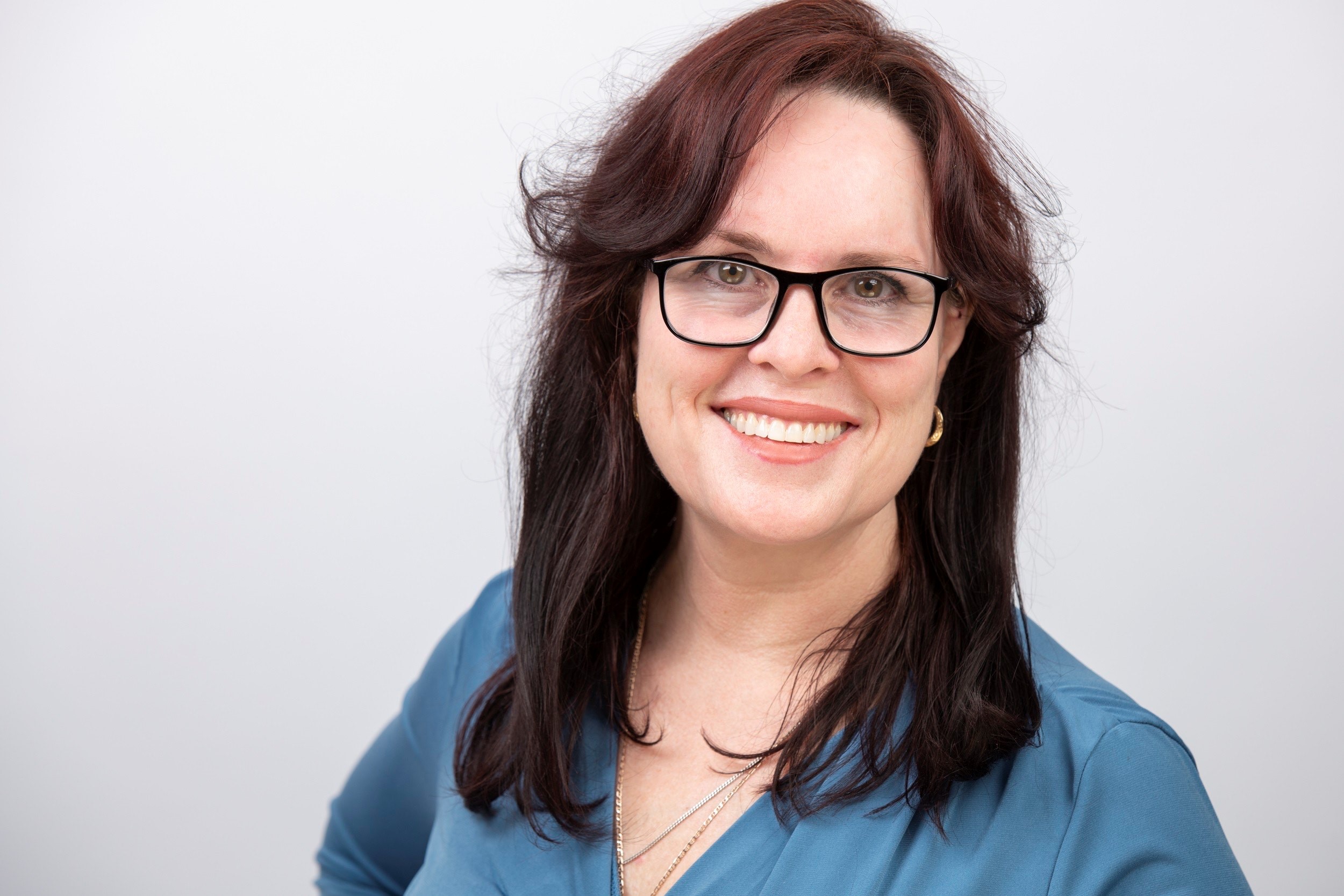
I was a full-time stay at home mum until my marriage ended, then I went back to school and became an anaesthetic technician while doing my Bachelor of Science and Doctor of Medicine. I had wanted to be a doctor since I was a pre-schooler and had always dreamed of going to UWA for this. I remember attending a wedding as a teenager, looking at Winthrop Hall and thinking, “One day I’ll become a doctor here.” Aside from the emotional connection to UWA, I knew it was one of the Group of Eight and it was also recommended to me by numerous surgeons and anaesthetists with whom I worked.
I began the Master of Health Professions Education during my MD and although I initially stepped it back to a graduate diploma, last year I decided to go back to doing it as a master’s. As I progressed through the units, I began to see the benefits to my current role as a doctor. I am also now involved in teaching at the hospital (teaching in human factors) and am considering moving more heavily into medical education. Even if I don’t pursue this path, a background in education is beneficial to people working in the health industry.
Carolyn’s advice to those interested in upskilling or reskilling in health
If you’re thinking about it, consider starting it – you can always reassess whether or not you want to continue. If it is something you are passionate about, you should pursue it. Read more advice from Carolyn on balancing study with work.
Katherine Kerimofski
Formerly: School psychologist
Studying: Graduate Certificate in the Diagnosis and Assessment of Fetal Alcohol Spectrum Disorders

I started this course in February with a 3-week-old baby. The first three modules are entirely online and consist of weekly interactive lectures and assignments. Occasionally Teddy would join me for lectures and meetings if my husband wasn’t home in time. I did my readings while my baby napped during the day and completed assignments in the evenings when he was asleep. Studying was a great way to keep my mind active and have something else to focus on besides the sometimes monotonous feed-play-sleep cycle.
Currently I’m completing the practical component of the graduate certificate while on parental leave. I decided to return to study after reading the findings of the Coroner in the Inquest into the Deaths of 13 Children and Young Persons in the Kimberley Region. FASD was noted as a potential contributor to the deaths and the report highlighted the need for more assessment and intervention.
I have just applied to start a PhD, looking at the potential role of school psychologists in the assessment and diagnosis of FASD. Through the knowledge gained in the course, I would like to pursue further research into FASD assessment and diagnosis, with the hope that students with FASD can be assessed and diagnosed while at school and receive intervention to prevent the development of negative secondary outcomes, such as school disengagement.
Katherine’s advice to those interested in upskilling or reskilling in health
I cannot recommend this course highly enough. UWA is the only university offering this course and Perth is home to some of the most cutting-edge FASD research in the world via UWA and the Telethon Kids Institute. If you are looking for something to set you apart from others in your industry or are simply curious about a topic, I recommend investigating what postgrad study options are available.
Alison Creagh
Profession: Doctor
Studied: Master of Health Professions Education – coursework and dissertation or thesis and coursework available
I attended an information session at UWA about the Health Professions Education options and was hooked! I was aware of other options based elsewhere but prefer face-to-face learning with other students whenever possible. At UWA, the possibility of working from a certificate to a diploma to a master’s was very attractive. I could either start small and enrol in the certificate and take it further later if I wanted to, or start with enrolling in the master’s but convert to the shorter options if I was struggling to fit it in.

I tried to set aside a full day of study per week, although this was not always possible. However, because I was learning and enjoying the study so much, it wasn’t difficult to sit down and do more study. Life was certainly extremely busy and some favourite activities had to be reduced. I took the course as slowly as possible (one unit per semester) to help me focus on what I was learning.
The course has increased my options for work and improved the way I do my work; for example, I am far more aware of fair assessment practices and the reasons why different teaching strategies are effective. Since the course finished, like everyone else in education, I’ve had to develop my skills and knowledge in online learning. Having the knowledge from the course really helped me think through how I can provide effective teaching in that environment. I love new challenges and developing new courses or ways of teaching existing courses. Having a greater understanding of how people learn (thanks to the course at UWA) has increased my ability to do this.
Alison’s advice to those interested in upskilling or reskilling in health
1. If you’re interested and thinking it might be helpful in your work, just try it!
2. Work out how to create the extra time required. What would you need to reduce?
3. Make sure your family understands that you will be even busier and ensure they’re able to provide extra practical and, perhaps, emotional support – particularly around assessment time.
4. If you are already very busy, do the units as slowly as you can. If there are unexpected extra demands on you during the course, consider putting study on hold until you can focus on it again.
5. Make the most of the interaction with other students – it is likely to really enrich your experience and your learning.
Anne Haskis
Formerly: Pharmacist
Studied: Graduate Certificate in Population Health Studies
I qualified as a pharmacist many years ago and worked for multinational pharmaceutical companies until I made the decision to stay home and raise a family. I wanted to return to working within the health environment but not as a retail pharmacist. I decided to tip-toe back into studying, as it had been many years since university and I wasn’t sure my academic skills would be good enough. I did not want to commit to several years of full-time study as I did not have the time to fully apply myself to that.
I knew population health was an exciting field and I hoped it would offer me some interesting opportunities for a second career path. As such, I signed up to do a Graduate Certificate in Population Health Studies as it was possible to take on a limited number of units and I was able to pick and choose those units I would find most relevant. I set out to do one unit per semester and compete it over a period of two years, but the convenience of having intensive units during the holidays meant I could balance my family-work-study commitments and complete the certificate after only one year.
I chose UWA because I wanted to be at the top-rated local university within the field. UWA has an exceptional school with highly regarded staff. UWA offers many opportunities to improve the skills that master’s units require. There were also talks on referencing, researching and scientific writing that I made an effort to attend. In some cases, I already knew what to do, but just needed to update my skills, and other times I was learning new skills from scratch. I did not need to buy any textbooks – I could access everything online and did take out a few reference books from the library.
I was so impressed by the quality of the young graduates entering the program directly from university and how the younger students, as well as the lecturers, were so accepting of mature-age students. Having life experience definitely made it easier to apply real-life examples to the units and that made it possible to see ways the course could provide a starting place for me to pursue opportunities. I would definitely consider going back again to complete the additional units required for the master’s (especially now that CSP places are available, which makes the commitment to the course more affordable).
One thing that really worked for me was to listen to the lecture recordings a little each day while I was driving to work and back, or just driving the children around. This meant that each week I would have a chance to hear the complete lecture a second time and that really helped cement the content for me. By the time exams came around, it was easier to revise because I had already made notes and re-listened to it all.
Anne’s advice to those interested in upskilling or reskilling in health
Give up Netflix! Get organised and make the time a regular commitment in your diary. I thoroughly prepared each week before my lecture by doing all the required readings and tutorial questions. This meant I could keep on top of the notes. Ask a lot of questions – you will be amazed at how many people are willing to help!
If you are interested in upskilling or reskilling in areas of health, view our range of courses.


